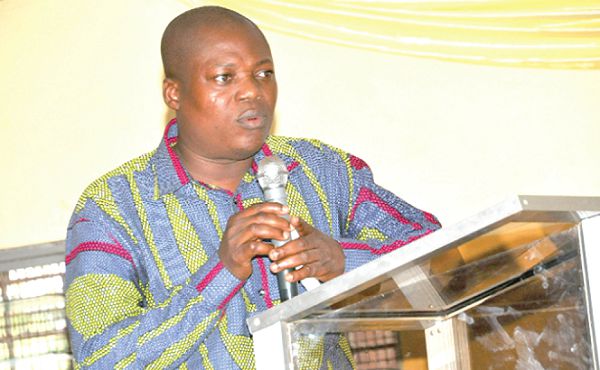
Govt’s decision to exclude gas from petroleum revenues questioned
Jessica Acheampong
Business News
An economist, Prof. John Gartchie Gatsi, has said the government’s decision to exclude gas revenues from its projected petroleum revenues needs further interrogation.
He said the proposal by the Minister of Finance in the 2019 budget to waive gas revenues to the tune of US$181.80 million was in clear contradiction to the definition of what constituted petroleum revenues in the law and the reasons for that decision was also unclear.
“That decision should be interrogated further because when you read the Petroleum Revenue Management Act (PRMA), it is very clear what constitutes petroleum
revenues so we cannot try to tamper with the definition of petroleum revenue.
What the Minister is doing now will mean that gas revenue does not form part of petroleum revenues and the reasons surrounding that were not very clear,” he said in a post-budget interview on November 23, 2018.
He added that the minister’s attempt to even explain that the proposal should not be misconstrued to mean that the ministry will not be pursuing the gas bills, as required by the PRMA, clearly showed it was a controversial decision.
“He knew it was a controversial decision.
I think that until clearer, more transparent explanation is given to that, we need to maintain the status quo in terms of what constitutes petroleum revenue which includes revenues from gas,” Prof. Gasti, who is also the Head of the Department of Finance at the School of Business, University of Cape Coast, said.
ACEP’s stance
The Africa Centre for Energy Policy (ACEP) had also earlier described the proposal to waive gas revenues as ‘interesting,’ explaining that the reality was that even before the official application for waiver, the Volta River Authority (VRA) had not been paying for gas consumption.
A statement issued by ACEP said after years of non-payment, coupled with the effort to remove distribution challenges through the implementation of the concession arrangement under the Millennium Challenge Compact II, the government was rather willing to entrench the practice of denying the Petroleum Holding Fund (PHF) revenue from gas.
“Since 2014, the government’s effort to provide a sound market in the power sector through its utilities has been abysmal; the government debt settlement and Electricity Company of Ghana (ECG) power purchase settlements continue to support Independent Power Producers (IPPs) over VRA, the latter being the primary consumer of domestic gas.”
“Since 2014, the government’s effort to provide a sound market in the power sector through its utilities has been abysmal; the government debt settlement and Electricity Company of Ghana (ECG) power purchase settlements continue to support Independent Power Producers (IPPs) over VRA, the latter being the primary consumer of domestic gas.”
The statement added that “the gas revenue is part of the receivables of the PHF. Therefore, the VRA must be made to pay for the gas.
The debt of the VRA is supposed to be part of the energy sector debts to be recovered under the Energy Sector Debt Recovery Levy Act (ESLA).
Thus far, no amount from the ESLA bonds has been paid into the Petroleum Holding Fund (PHF) in respect of gas revenues.”
It also added that the second decision was that gas revenue from the SankofaGyeNyame (SGN) field was also being deferred to cut back on production and its financial consequences on the country for the inability to create consumption for the take or pay gas.
The statement explained that this was avoidable if the necessary arrangements were made in time to ensure that the power plants were properly located to make use of the gas.
“Since 2014, it was known that the SGN will be produced in the western part of the country.
At the same time more power plants were being sited in the east.
Plants such as the Karpower, AKSA and Asogli phase II could have been sited close to the gas market.
The alternative of reversing the gas through the West Africa Gas Pipeline (WAGP) has had sluggish attention.
It has taken more time to build the Floating Production Storage Offloading (FPSO) vessel and the other infrastructure for the production, processing and transportation of the gas onshore,” it added.
Background
The Minister of Finance, Mr Ken Ofori-Atta, in the 2019 budget said the ministry was proposing to Parliament to allow it to exclude gas revenues to the tune of US$181.80 million from the projected petroleum revenues for 2019, as it devises ways of getting the VRA to pay for the gas supplied it by Ghana Gas.
He also said that as a measure to minimise the amount of gas produced in the SGN Field for power production, the government had decided to postpone the extraction of its share of the gas resource (Royalties and CAPI) until the time we line up off takers to consume the gas in-year.
He also said that as a measure to minimise the amount of gas produced in the SGN Field for power production, the government had decided to postpone the extraction of its share of the gas resource (Royalties and CAPI) until the time we line up off takers to consume the gas in-year.
This is to ensure prudence in a bid to achieve a realistic fiscal deficit for the year. — GB